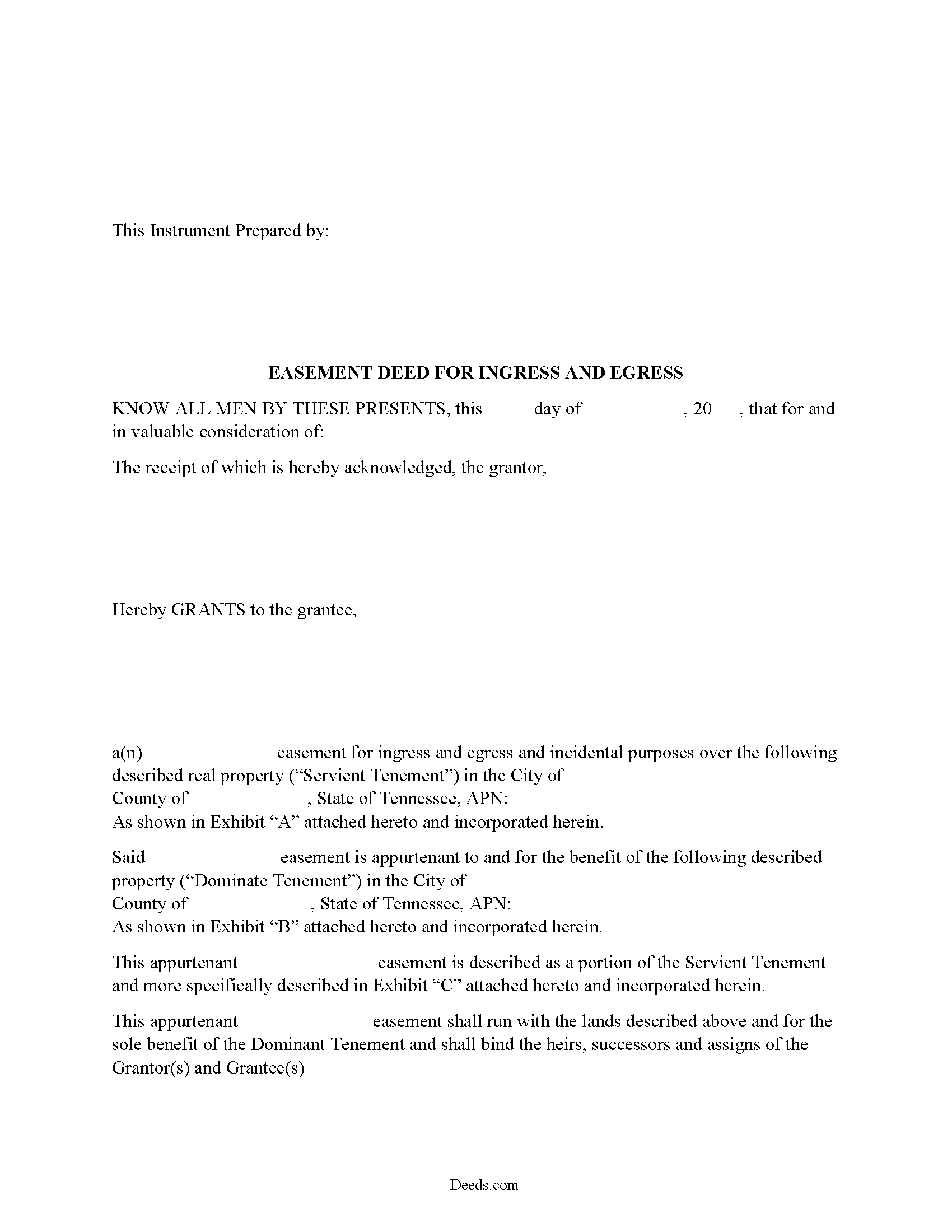Download Tennessee Easement Deed Forms
Tennessee Easement Deed

An easement is an interest in real property that grants the easement holder a legally enforceable right to use another's property for a specific purpose. This type of interest in land can be created in various ways in Tennessee: by an express grant, by reservation, or by implication. An express easement is a grant of an interest in land and must comply with the Tennessee Code Annotated Statute of Frauds, which states that no charge may be brought against a contract for the sale of lands, tenements, or hereditaments unless the promise or agreement upon which such action shall be brought is in writing and signed by the party to be charged therewith (29-2-101). An express easement by grant is created by a deed in writing that contains plain and direct language evidencing the grantor's intent to create an easement. The scope and duration of the easement is set forth in express terms in the granting document. When the owner of a dominant tenement transfers title in Tennessee, he transfers to the grantee all rights in and to the property, including all appurtenant and necessary easements attached to the property.
A solar energy easement can be created according to the provisions outlined in 66-9-204 of the Tennessee Code Annotated. This type of easement is presumed to run with the benefitted and burdened land and is deemed to pass with the property when the title is transferred, unless the parties to the easement provide otherwise in writing (66-9-205).
A county recorder in Tennessee can refuse to record an easement deed unless it has been authenticated. A deed is considered authenticated when it has been signed and acknowledged by the grantor or proved by two subscribing witnesses (66-22-101). Acknowledgements made within the state can be made before the county clerk, a legally appointed deputy county clerk, a clerk and master of a chancery court of a county in the state, or before a notary public within the state (66-22-102). An easement deed acknowledged out of state will be valid in Tennessee if it has been executed and acknowledged according to the laws of such state. Out-of-state acknowledgments can be taken before any of the officers listed in 66-22-103. A certificate of acknowledgment should be attached to or endorsed on a deed executed in Tennessee or in another state (66-22-107).
The act of recording an easement deed will provide notice to the general public of the existence of the deed from the time it is recorded, and the deed will take effect from the time it is recorded (66-26-102). An easement deed that has not been recorded as required will not be effective as to other persons not having notice of the deed. Unrecorded easements will be effective between the parties to the deed and their heirs and representatives (66-26-101). The priority of instruments is determined as follows: A deed that is registered first or noted for registration first will have priority over a deed of an earlier date but is noted for registration afterwards, unless it is proved in a court of equity, according to the rules of the court, that the party claiming under the subsequent instrument had full notice of the previous instrument (66-26-105). Easement deeds and other real property instruments in Tennessee are required to be recorded in the register of deeds office in the county where the property is located. If property is located partly in two or more counties, the deed may be recorded in either county; and if there are several tracts of land lying in different counties, the deed should be recorded in each of the counties where any of the tracts lie (66-24-103).
(Tennessee ED Package includes form, guidelines, and completed example)